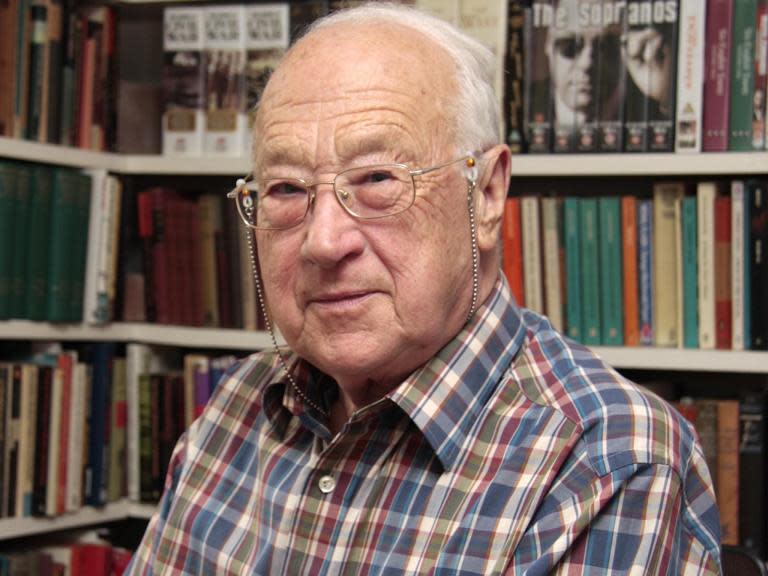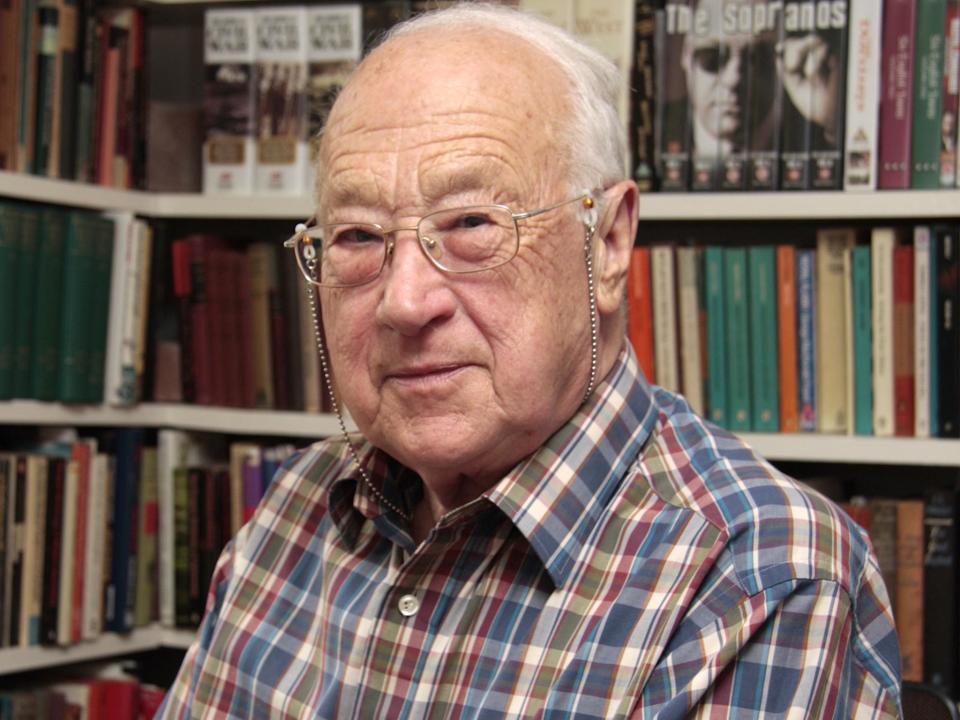Anthony Price: British journalist and master spy novelist
Anthony Price was a British journalist who in his spare time wrote 19 novels that drew deeply from history and are considered among the finest spy thrillers of their time.
Price, who has died aged 90, wrote reviews of crime fiction and military history for many years before combining the two interests in his novels.
He published his first thriller, The Labyrinth Makers, in 1970. In that book, he introduced Dr David Audley, a character who would appear in most of his books. A scholarly Second World War veteran who was trained as a medieval historian and archaeologist, Audley became a specialist in Middle Eastern affairs for a British intelligence agency. Inevitably, and reluctantly, he found himself caught up in cloak-and-dagger engagements during the Cold War.
“He was not a field man, never had been and never wanted to be,” Price wrote of Audley. “The back room among the files and the reports was his field.”
Other characters recurred throughout Price’s novels, most notable being Colonel Jack Butler, who became Audley’s boss, and two other operatives, Hugh Roskill and Elizabeth Loftus.
By weaving historical elements into his plots, from Roman and Arthurian times to the American Civil War and the First World War, Price sought to show how modern-day problems could have unexpected connections to the past. As much as people had tried to bury the past, it seeps through time and reappears, Price wrote, “like the scar of a wound too frightful to be displayed”.
Critics also admired his use of dialogue as a crucial way of advancing his stories.
“You reveal character not by the author saying anything,” he said in 2011, “but by the character saying something, or doing something.”
His body of work was considered almost on the same level as that of John le Carré, the acknowledged master of the spy novel.
“Mr Price writes thrillers for grown-ups,” wrote in The New York Times in 1986. “He does not yet enjoy the same degree of fame as John le Carré, Len Deighton or Frederick Forsyth; but he can more than survive comparison with any of them.”
One of Price’s most acclaimed novels was Other Paths to Glory (1974), in which Audley investigated the mysterious deaths of several historians whose research on the First World War became fatally intertwined with a modern-day nuclear summit.
For his research, Price walked across European battlefields and interviewed veterans of the conflict. Other Paths to Glory won Britain’s Gold Dagger award as the year’s top crime novel, beating out one of Le Carré’s best-known books, Tinker, Tailor, Soldier, Spy. The novel was ranked by The Daily Telegraph as one of the all-time 20 best spy novels.
Alan Anthony Price was born in 1928, in Rickmansworth, Hertfordshire. His father was a businessman in India, his mother an artist who died when her son was seven. Price was raised largely by an aunt.
He served in the British army in the late 1940s before studying history at the University of Oxford. After graduating in 1952, he stayed in Oxford as a reporter and editor at The Oxford Times newspaper.
As a young journalist in 1950s, Price was asked to write a review of a children’s book by a local author. Another reviewer found it “boring” but Price was enchanted by what turned out to be the first volume of JRR Tolkien’s The Lord of the Rings.
Tolkien taught at Oxford, and Price sat down with him for what turned out to be the Tolkien’s first newspaper interview.
“He wasn’t very popular,” Price recalled. Another Oxford scholar, he said, complained: “Yes, Tolkien: very clever fellow, dear boy. Didn’t teach much. He used to bring that elvish stuff, and I said, ‘Don’t let’s have any more of this elvish nonsense!’”
In the same decade Price began reviewing crime fiction and became such an authority that the British publishing house of Victor Gollancz asked him to write a history of the field. Instead, he wrote a novel.
From 1970 to 1989, he turned out a novel almost every year. Among his most acclaimed titles were Colonel Butler’s Wolf (1972), in which Audley ferrets out a Soviet agent in Oxford; The ’44 Vintage (1978), which recounts Audley’s experiences in the Second World War; Sion Crossing (1984), in which one of Audley’s internal rivals bungles an investigation involving buried treasure from the US Civil War; and Here Be Monsters (1985), which touches on the D-Day invasion and a ring of Soviet spies in the British intelligence service.
“We who fight monsters,” one of the characters in that book says, alluding to Nietzsche, “must take care, lest we become monsters too thereby.”
While writing his novels, Price continued to work at The Oxford Times, serving as its editor from 1972 to 1988. After his final novel, The Memory Trap, appeared in 1989, he published one more book, a history of naval warfare from 1793 to 1815.
His wife of 59 years, Ann Stone, died in 2012. Survivors include three children and five grandchildren.
Alan Anthony Price, author and journalist, born 16 August 1928; died 30 May 2019
© Washington Post
Image provided by Existential Ennui


